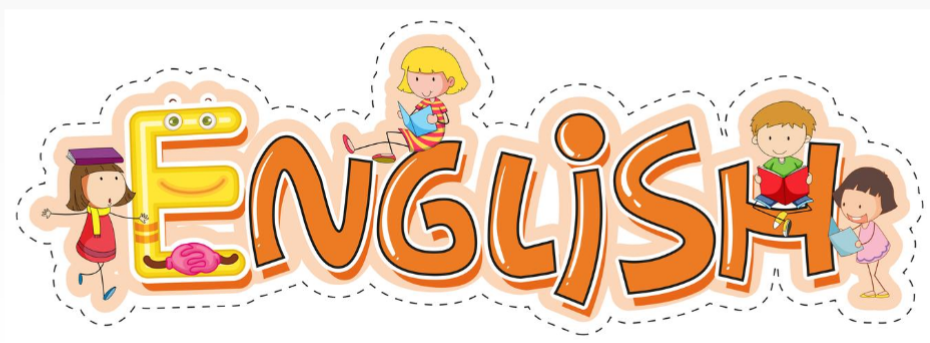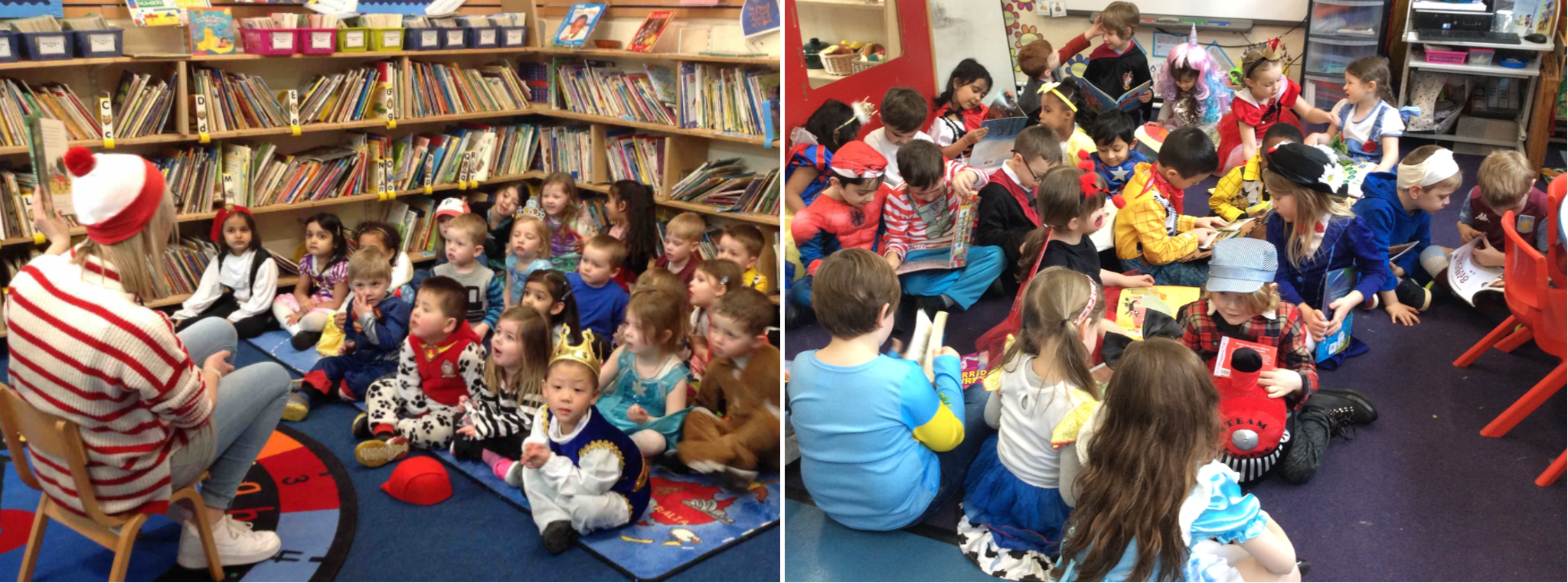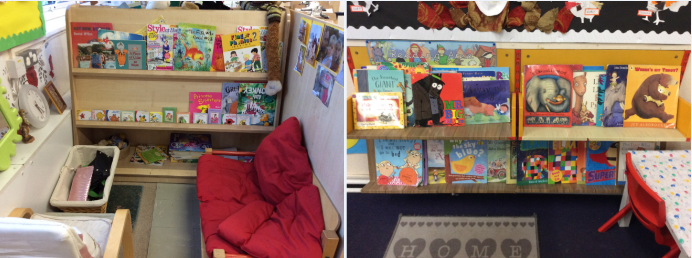EYFS English
.png)

.png)
English Curriculum
Intent
At Boldmere Infant and Nursery School we want our children to become effective communicators by developing their skills in speaking, listening, reading and writing, as we believe this is the key to future learning and success. We aim to widen their imaginations, develop a love of language and literature, and create a school environment that fosters this. We want them to know about authors, books and stories and have the confidence to use their skills and knowledge creatively.
Implementation
In order to respond to the needs of our children and meet the requirements of the statutory curriculum, teachers are guided by a range of resources and materials so that children make progress in all aspects of English. Our long and medium term plans provide structure and show clear progression in skills and knowledge. Where possible, reading and writing opportunities are linked to themes so that children’s learning is meaningful and they can make explicit links to support learning on other curriculum areas.
Phonics
Phonics is taught in the Foundation Stage and Year One to develop skills in blending and segmenting, and these skills are built upon in Year Two so that children become confident readers and spellers by the end of Key Stage One. Our children are taught to decode print through daily phonics lessons following 'Sound! Start Phonics for Letters and Sounds'. Each lesson provides opportunities for children to practise previous learning as well as being introduced to new phonemes. Within lessons, children apply their learning with opportunities for spelling.
In Year Two children focus on applying their prior phonic knowledge to read and spell more complex words. They have a daily phonics/spelling lesson in which they are taught these skills and have opportunity to practice previous learning.
Children are assessed regularly and appropriate intervention is provided as a result of these ongoing assessments. This ensures that any gaps in children’s knowledge are addressed as soon as possible.
Reading
Reading is at the heart of our curriculum and staff read daily to the children to promote a love of reading. The books that are shared with children are carefully chosen by staff to provide them with a wide range of engaging and age-appropriate texts to widen their vocabulary and knowledge of literature - including poetry and and non-fiction.
Reading is taught daily through Guided Reading lessons. Our core reading scheme is Big Cat as this links to the structured progression of Sound! Start Phonics. Children read increasingly complex decodable books including a variety of stories and non-fiction texts. Children read twice a week with an adult, re-reading the same text in order to develop fluency, prosody and comprehension.
During our whole class teaching, we use other quality reading material so that children are appropriately challenged in both word reading and comprehension.
We use a range of teaching strategies and resources at the different stages of a child’s learning. For example, guided reading, individual reading and whole class reading approaches are used across the school. Towards the end of Year Two children are introduced to some elements of the VIPERS approach to reading which is used in the Junior School so that children are ready for their next stage of learning.
Children regularly take home reading books, which are recorded in their individual reading diaries. Classes visit the school library weekly and they select books to take home to share with their family. Parents are also encouraged to read a wider range of texts with their child and the school reading challenge provides guidance on this. We recognise the importance of parental involvement, and invite parents to workshops to support their work with their child at home.
Developing children's vocabulary is essential, and therefore all subjects have a clear bank of vocabulary built into their progression maps to ensure that language is introduced and rehearsed at appropriate intervals to minimise a vocabulary gap, and ensure that out children develop word breadth.
Writing
We use the teaching sequence of ‘Talk for Writing’ to teach writing, as this scheme provides a clear structure for children when retelling stories and writing short narratives. Texts are carefully chosen by staff to ensure that the writing skills that are being taught are well modelled in the text that is shared. We aim to ensure that children are exposed to range of fiction and non-fiction texts, demonstrating a clear progression in the vocabulary that children are taught.
Through role-play children are provided with opportunities to imitate and innovate stories, basing their ideas the on texts that have been shared in class. This enables them to build a bank of vocabulary, which can later be incorporated into their writing. We explicitly teach the skills needed for writing as outlined in the statutory curriculum, and children apply and consolidate these in purposeful writing activities.
Handwriting
Children are taught letter formation as they learn graphemes in Reception. Letters are then taught in family groups following the Morrell’s handwriting scheme. Time is provided for children to practice and embed letter formation which will lead to fluency before introducing joined up letters.
Pre-writing skills are developed throughout the EYFS in focussed activities and Continuous Provision so that children develop stability and strength to hold and steer a pencil.
Enrichment Activities
We enrich the curriculum with special events such as book week, visiting theatre companies, storytellers and regular use of the school library to promote our children’s love of reading. We also encourage children to take part in reading challenges and National events, such as World Book Day, to encourage an appreciation of literature.

We had a fantastic time celebrating World Book Day, and enjoyed dressing up as our favourite characters, listening to stories in the library, and sharing our favourite books from home with friends from other year groups!
Book Explorers Challenge
We encourage children to read a wide range of books as part of our ‘Book Explorer Challenge’. Children are encouraged to record their ‘book explorer reading’ in their reading records, in order to achieve their bronze, silver and gold awards.
Please click the link below for the Book Explorer Challenge for your year group.
Nursery Book Explorers Challenge
Reception Book Explorers Challenge
For the Book Explorer challenges for Years 1 and 2, please see our KS1 English page
Reading and Writing in the EYFS classroom
Teachers and Teaching Assistants share a story with their class every day. We read a wide range of books over the course of a term, linking books to other curriculum areas, as well as stories to support our school values.
All of our classrooms are enriched with displays and labels which the children are encouraged to read by ‘reading round the room’. Resources within the classrooms are clearly labelled with words and pictures to support children in making links in understanding new vocabulary. Our Literacy displays celebrate current learning and the soundboards in the Reception classrooms are added to each day as a new sound is introduced.
Each of our Early Years classrooms offer continuous provision, including a reading corner and a mark making area. Our reading corners include a range of fiction, non-fiction and poetry books, and are designed to be inviting and cosy, encouraging children to imitate story time at home and retell familiar tales using the available props.
Here are some examples of our cosy, comfortable reading corners, as well as how we incorporate English into other areas of continuous provision:

.png)
The mark making areas provide a variety of writing tools to support children in developing their pre-writing schools (such as drawing shapes, colouring), before they are taught to form recognisable letters to communicate meaning. Opportunities for learning in English are also incorporated into other areas of continuous provision – such as recipe books in the playdoh area and shopping list paper in the home corner.

Our school library
We are fortunate to have a well-stocked library in school. It is an inviting area which encourages children to read a range of books. All classes are timetabled to visit the library on a regular basis and children are able to take home books that they choose. Teachers and Teaching Assistants read stories to the children in the library. Our library was recently 40 years old and we celebrated this with a special assembly.
Author of the half term
Each half term, we have a whole-school focus on a different author. In the library, we display a range of books by our chosen author and children are encouraged to read books which are written by them and to find out about the author.
Useful resources
Phonics Play - lots of interactive phonics games and resources.
Phonics Bloom - a range of online phonics games, helping teach children the relationship between letters and sounds and develop the skills needed to read and write.
Oxford Reading Owl - lots of free educational resources to support learning at home. Advice and support for parents, educational games and a free eBook library for 3-11 year olds.
Children also receive a logon for Big Cat books to support reading at home. This mirrors the reading that takes place in the classroom.
.png)